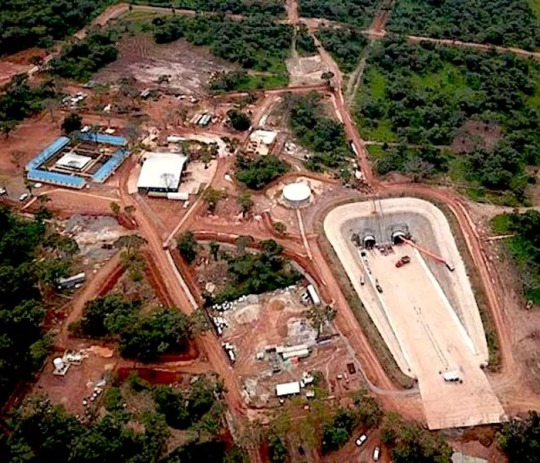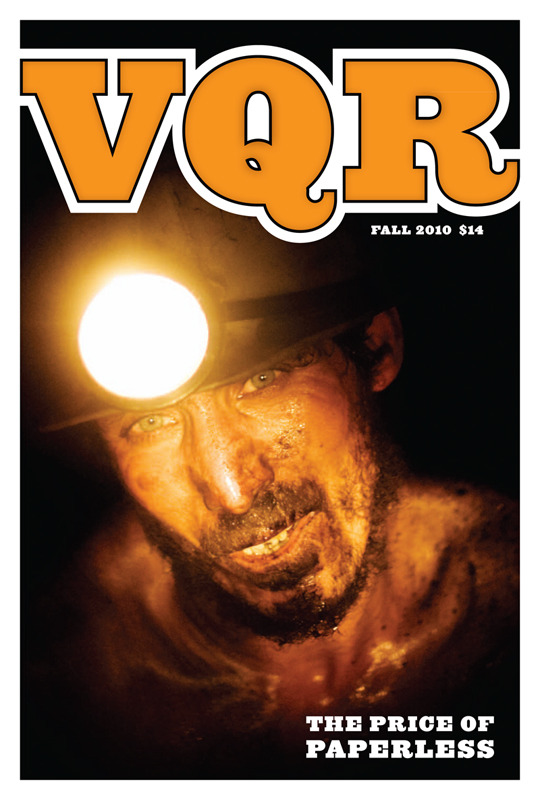#mining (industry)
Explore tagged Tumblr posts
Text

#free congo#don't forget about the congo#tesla#glencore#cobalt#nickel#human rights abuses#allegations#mining industry#renewable energy#clean energy#environmental impact#worker mistreatment#corruption#ethical sourcing#global supply chain#corporate responsibility#renewable energy transition#accountability
344 notes
·
View notes
Text
Excerpt from this story from Earthjustice:
The Washington Post reported today that the Trump administration is considering an attack on at least six national monuments across the American West to hand over to industry some of America’s most important public lands. The report indicates that the Interior Department is considering illegal boundary reductions and stripped federal protections for Baaj Nwaavjo I’tah Kukveni-Ancestral Footprints of the Grand Canyon, Ironwood Forest, Chuckwalla, Organ Mountains-Desert Peaks, Bears Ears and Grand Staircase-Escalante national monuments, which comprise over 5 million acres of public land in Arizona, California, New Mexico, and Utah.
A rollback of monument protections would be illegal and would likely trigger litigation. The Antiquities Act of 1906 authorizes presidents to designate national monuments, but it does not give them the power to shrink monuments created by their predecessors or to undercut monument protections. Congress’s intent was clear: the Antiquities Act must only be used to protect the nation’s archaeological, cultural, and scientific wonders.
“An attack on any of these national monuments would be illegal,” said Drew Caputo, vice president of litigation for lands, wildlife, and oceans at Earthjustice. “For the Trump administration to consider handing over our beloved national monuments to industry is both shortsighted and completely unnecessary. There’s a reason Tribes, local communities, and small businesses have fought for decades to protect these places: their cultural and historic significance, combined with their astounding natural beauty and biological value, make them among our most important public lands.”
The first Trump administration tried to strip monument protections from half of Grand Staircase-Escalante National Monument and nearly 90% of Bears Ears National Monument. Earthjustice swiftly filed suit on behalf of conservation groups challenging the administration’s illegal actions. Those lawsuits are currently stayed in district court, as President Biden restored both monuments in 2021.
Last week, the Trump administration also signed a proclamation attempting to open the Pacific Islands Heritage Marine National Monument to commercial fishing. The proclamation seeks to allow U.S.-flagged vessels to fish commercially within 50 to 200 nautical miles of the monument’s boundaries.
56 notes
·
View notes
Text
Imagine you own a coal mine in British Columbia. (Yes, governments in Canada are still approving new coal mines.)
Over the last three decades, you’ve made a bucket-load of money stripping the top off a mountain, and now you’re sitting on a pile of environmental liabilities that threaten to eat into your profits.
You have two choices. You could spend millions of dollars on a process known as reclamation, stabilizing hazardous waste and restoring the site to some semblance of its former ecological value, which is what you committed to when you opened the mine.
Or, you could declare the mine to be in “care and maintenance,” a status that is accepted as standard by most jurisdictions, despite the fact that it lacks a formal legal definition.
The status has very little to do with actual care or maintenance. It might more accurately be described as “abandonment and neglect,” but that wouldn’t sound nearly as elegant. [...]
Continue Reading.
Tagging: @politicsofcanada, @vague-humanoid
168 notes
·
View notes
Text

Bridge end
131 notes
·
View notes
Text
Hundreds of new mining claims have been staked within the community of Amargosa Valley, Nevada, on thousands of acres directly adjacent to Death Valley National Park.
These new mining claims, documented here for the first time, are staked above groundwater aquifers that feed the springs at Furnace Creek in Death Valley National Park and provide drinking water to the Timbisha Shoshone Reservation. Furnace Creek hosts the park’s visitor center, hotels and other tourist amenities.
“We are extremely concerned about this dramatic rise in mining activity directly adjacent to Death Valley National Park,” said Mason Voehl, executive director of the Amargosa Conservancy. “These claims were filed right next to people’s homes and businesses, and mining there would threaten the groundwater that communities and the environment rely on for survival.”
The new claims were filed by Canadian-based Rover Critical Minerals and follow a year of controversy over claims filed near Ash Meadows National Wildlife Refuge just a few miles away. The company's proposed mining project in that area sparked a lawsuit that led to the withdrawal of project approval and prompted efforts to secure a mineral withdrawal within the Amargosa Valley area.
Local governments, including the towns of Beatty and Amargosa Valley, have expressed support for pausing new mining claims in the area so that a mineral withdrawal planning process can be undertaken. The Timbisha Shoshone Tribe has also supported that proposal.
“Our national parks were set aside for future generations to experience abundant wildlife and iconic landscapes and learn from our rich cultural stories. These new mining claims are encroaching on our ability to tell that shared story across the California desert,” said Luke Basulto, California Desert program manager at the National Parks Conservation Association. “We have a fleeting opportunity to protect this place — Congress and the administration can act now to save Death Valley National Park, Ash Meadows National Wildlife Refuge and the rare waters that sustain them.”
The claims have not yet been registered in the U.S. Bureau of Land Management’s Minerals and Land Record System. But in recent field reconnaissance, local residents encountered hundreds of claim markers staked in the ground, with numbers indicated on the claim notices as high as 387. These claims appear to be blanketing an area of approximately 8,000 acres on the border of Nevada and California, just 1 mile away from the park.
Drilling and mining in the area could harm springs and groundwater wells in Death Valley and impair Timbisha Shoshone Tribal water rights. While new mine claims do not guarantee full-scale mining operations, lax regulation means that exploratory drilling alone, with limited regulatory requirements, can have an impact on scarce groundwater sources and natural resources.
“These new mining claims are a real escalation against our efforts to save Ash Meadows and the Amargosa River Basin,” said Patrick Donnelly, Great Basin director at the Center for Biological Diversity and a longtime resident of the area. “Now one of our country’s most beloved national parks and a sovereign Native American nation are also under attack. We need immediate action to pause further expansion of the mining industry in this sensitive region.”
#ecology#enviromentalism#death valley#nevada#mining industry#mining#fresh water#water pollution#bureau of land management#indigenous rights
9 notes
·
View notes
Text

Mining and Agriculture Africa stands out as a leading company specializing in the extraction, supply, and distribution of valuable minerals across South, North, West, and East Africa. Our commitment revolves around delivering high-quality mineral resources to industries worldwide.
Recognizing the pivotal role of agriculture in Africa's economy, we at Mining and Agriculture Africa are dedicated to providing essential resources that support both domestic and international markets.
Our team of seasoned professionals works tirelessly to ensure that our products consistently meet the highest quality standards. With a robust and comprehensive supply chain network, we prioritize prompt and efficient delivery of orders to our clients.
Whether your needs involve minerals for industrial, construction, or energy purposes, Mining and Agriculture Africa is your reliable supplier. Contact us today for efficient and dependable mineral supply services.
For inquiries, reach out to us at +27 64 000 0693 or via email at [email protected]. Explore more about our offerings on our website: www.miningandagricultureafrica.com
7 notes
·
View notes
Text





Nuttalburg
.
Photographed by Lily Helmick - Instagram | Tumblr
#appalachia#autumn#landscape#nature#landscape photography#nature photography#autumn photography#autumn vibes#history#mining#mining industry#mining history#coal mining#coal town#new river gorge#west virginia#appalachain mountains
15 notes
·
View notes
Text
The Price of Paperless

Table of Contents
Here Everything is Poison
By J. Malcolm Garcia, Photography by Darren McCollester
Fall 2010
Cold winds carry lead-filled dust from a nearby slagheap, a hundred million tonnes of toxic tailings, and scatter it on clothes hanging from laundry lines, on open buckets of drinking water, on the dirt children play in, and on the feral dogs running down alleys in this former French army barracks housing about 250 displaced Roma men, women, and children.
Editor’s Desk
The Price of the Paperless Revolution
By Ted Genoways
Reporting
Jharia Burning
By Allison Joyce, Photography by Allison Joyce
The Pit
By Nathaniel Miller
Father Copper
By Annie Murphy, Photography by Rodrigo Llano
Mother of God, Child of Zeus
By Jessica Benko, Photography by Bear Guerra
Digging Out
By Elliott D. Woods, Photography by Elliott D. Woods
The Solution: Bolivia’s Lithium Dreams
By Matthew Power, Photography by Fabio Cuttica
Tin Fever
By Delphine Schrank, Photography by Mark Craemer
Here Everything is Poison
By J. Malcolm Garcia, Photography by Darren McCollester
Essays
The Devil’s Tail: Reading From the Lives of Authors
By Robert Boyers
Fiction
Favorite Son
By Jennifer Haigh
The Digger
By Samanta Schweblin, Translated by Daniel Alarcon
Poetry
The Man
By Patrick Phillips
Work-Clothes Quilt
By Patrick Phillips
Tailing Dam of Baotou Steel
By Qin Xiaoyu
The Book of Lost Railroad Photographs
By Amy Beeder
Criticism
The Age of Inequality
By Oscar Villalon
The Activist Novelist
By Jacob Silverman
The Triumph of Capitalism
By Brian Sholis
Multimedia
The Underground Giant: Life in the Hard Rock Mines of Quebec and Ontario
By Louie Palu, Photography by Louie Palu
#article#the price of paperless#the Virginia quarterly review#green washing#lithium#mining industry#mining#paper#digital#technology#air pollution#pollution#environmental movement#environmental activism#environment#climate crisis#capitalism is a scam#congo
7 notes
·
View notes
Text
https://republic.com.ng/october-november-2023/congo-cobalt-genocide/#:~:text=As%20of%20October%202023%2C%206.9,evictions%20driven%20by%20cobalt%20mining
Whats going on in Congo and important history!
#Democratic Republic of Congo#Congo#congo genocide#humanitarian crisis#human rights violations#child labor#mining industry#cobalt#technology#free congo#the republic
2 notes
·
View notes
Text
Shasat Debuts IFRS Course Tailored for Energy & Mining Industries
In a bid to address the complex accounting requirements specific to the Oil & Gas, Power, Utility, and Mining industries, Shasat, a leading education provider, has unveiled a comprehensive two-day program on International Financial Reporting Standards (IFRS). This specialized course aims to equip professionals with the knowledge and skills necessary to navigate the intricacies of financial reporting within these sectors.
The Oil and Gas industry, integral to global economies, grapples with challenges like high capital costs, long project lead times, and substantial environmental impact. Shasat's program recognizes the importance of understanding how to evaluate commercial viability, technical feasibility, and mitigating environmental concerns within this industry.
Similarly, the mining sector, with its substantial capital investments and intricate processes, faces environmental challenges and geopolitical risks. The utility industry, providing essential services like electricity, natural gas, and water, is continually adapting to changing consumer demands and sustainability goals.
To effectively address the unique accounting demands of these industries, Shasat's program delves into critical IFRS standards such as IFRS 6 for Exploration and Evaluation of Mineral Resources, IAS 23 for Borrowing Costs, IFRS 15 for Revenue Recognition, IFRS 16 for Leases, IFRS 9 for Financial Instruments, and more. These standards play a pivotal role in ensuring accurate and transparent financial reporting, benefiting stakeholders across the Oil & Gas, Power, Utility, and Mining sectors.
The Upstream, Mid-Stream, and Down-Stream industries within the Oil & Gas sector face distinctive accounting challenges. From reserves and resources to revenue recognition and disclosure of reserves, Shasat's program covers a wide range of accounting topics tailored to industry-specific needs. The course ensures that professionals in these sectors are well-equipped to handle complex financial matters, including production-sharing agreements and concessions.
Shasat's two-day program is designed for professionals working in the Oil & Gas, Power, Utility, and Mining industries, including auditors and consultants. By participating, attendees will gain valuable insights into the latest accounting issues, challenges, and best practices. Furthermore, the program offers networking opportunities with industry experts and peers, fostering a collaborative learning environment.
Here is the schedule of upcoming programs by Shasat. However, we recommend you continue to visit Shasat's website for the most up-to-date program schedules.
IFRS Training for Oil & Gas, Power, Utility, & Mining Companies | GID 16001 | London: Oct. 17-18, 2023
IFRS Training for Oil & Gas, Power, Utility, & Mining Companies | GID 16003 | Abu Dhabi: Dec. 18-19, 2023
IFRS Training for Oil & Gas, Power, Utility, & Mining Companies | GID 16004 | Kuala Lumpur: Dec. 13-14, 2023
IFRS Training for Oil & Gas, Power, Utility, & Mining Companies | GID 16009 | Zurich: Oct. 23-24, 2023
IFRS Training for Oil & Gas, Power, Utility, & Mining Companies | GID 16010 | Singapore: Dec. 15-16, 2023
IFRS Training for Oil & Gas, Power, Utility, & Mining Companies | GID 16012 | New York City: Oct. 4-5, 2023
IFRS Training for Oil & Gas, Power, Utility, & Mining Companies | GID 16013 | Toronto: Nov. 1-2, 2023
IFRS Training for Oil & Gas, Power, Utility, & Mining Companies | GID 16014 | Sydney: Nov. 22-23, 2023
IFRS Training for Oil & Gas, Power, Utility, & Mining Companies | GID 16015 | Dubai: Nov.r 14-15, 2023
IFRS Training for Oil & Gas, Power, Utility, & Mining Companies | GID 16000 | Online | Available on Request
For more details and to enrol in Mastering IFRS for Oil & Gas, Power, Utility, and Mining Industries, please visit:
https://shasat.co.uk/product-category/mastering-ifrs-for-oil-gas-power-utility-and-mining-industries-2-days/
By enrolling in Shasat's IFRS course, participants will enhance their accounting skills, improve their understanding of industry-specific financial reporting requirements, and elevate their careers to new heights. Don't miss this opportunity to stay ahead in the dynamic world of financial reporting within the Oil & Gas, Power, Utility, and Mining sectors.
Shasat looks forward to welcoming professionals eager to enhance their expertise in IFRS for these essential industries.
#IFRS#Financial Reporting#Oil & Gas Industry#Power Industry#Utility Industry#Mining Industry#Accounting Standards#Professional Development
2 notes
·
View notes
Text
Environmental Management in Australian Underground Mining Operations
Balancing Resource Extraction with Responsible Environmental Practices
Australia’s vast mineral wealth has long been a driving force behind the nation’s economic growth, with underground mining playing a significant role in tapping into deep-seated deposits of gold, copper, nickel, and more. While this method offers advantages over open-cut operations—such as a smaller surface footprint—it’s not without environmental challenges. In this article, we’ll explore how underground mining in Australia is evolving through innovative environmental management strategies and why this is crucial for a sustainable future.
Understanding Underground Mining in Australia
What Is Underground Mining?
Underground mining involves accessing mineral deposits deep beneath the earth’s surface using tunnels or shafts. Unlike surface mining, which removes large quantities of overburden, underground mining disturbs less land but often operates in more sensitive ecosystems or near populated areas.
Examples of Underground Mining in Australia
Australia is home to several world-class underground operations. Some notable examples of underground mining include:
Olympic Dam (SA) – One of the largest known deposits of copper, uranium, and gold.
Cadia East (NSW) – A major gold mine using block caving techniques.
Savannah Nickel Mine (WA) – Extracts nickel and cobalt from deep reserves.
How Does Underground Mining Affect the Environment?
Despite being less visually disruptive than surface mining, underground operations can have significant ecological implications. Let’s break down some of the key areas of concern regarding underground mining environmental impact.
1. Ground Subsidence
The removal of materials from deep underground can lead to surface collapses or land subsidence, affecting ecosystems, infrastructure, and communities.
2. Water Contamination
Mining can alter groundwater flow and introduce heavy metals or other pollutants, posing risks to both ecosystems and water supplies.
3. Energy and Emissions
Underground mining is energy-intensive. The need for ventilation, lighting, and transport within tunnels often leads to high greenhouse gas emissions unless managed with modern technologies.
Environmental Management Practices in Modern Underground Mining
To answer the question, "how does underground mining affect the environment?", one must also look at how the industry is addressing those impacts. Underground mining in Australia has seen a shift towards more sustainable operations through stringent regulation and technological innovation.
1. Environmental Monitoring Systems
Real-time monitoring of air quality, noise levels, and groundwater ensures that mining activities remain within regulated limits. Data-driven decisions help in early detection of environmental breaches.
2. Ventilation on Demand (VOD)
Modern underground operations are using VOD systems to reduce energy consumption by adjusting airflow based on occupancy and activity levels in mine sections.
3. Water Management Plans
Mines now implement comprehensive water treatment and recycling systems to reduce water usage and prevent contamination.
4. Biodiversity Offsets and Rehabilitation
Many mining companies commit to biodiversity offset programs and thorough site rehabilitation post-mining, ensuring long-term ecological recovery.
Collaborative and Regulatory Efforts
Australian engineers and environmental scientists often work closely with regulators like the Department of Climate Change, Energy, the Environment and Water (DCCEEW). These partnerships ensure that mining operators follow best practices while also investing in sustainable research and innovation.
Final Thoughts
The question of how does underground mining affect the environment is a complex one, but the industry is making progress in addressing its challenges. By adopting proactive environmental management strategies, underground mining in Australia is becoming cleaner, safer, and more sustainable.
As the demand for critical minerals continues to rise globally, balancing economic benefits with environmental responsibility remains essential. Through innovation, collaboration, and adherence to strict environmental standards, the future of underground mining in Australia can be both productive and environmentally conscious.
#mining industry#mining tenement#tenement#hetherington#tenement consultant#tenement management services#tenement management#mining#underground mining vehicle#mining application
0 notes
Text
The Rare Earths Gamble: Geopolitical Stakes Rise as China Halts Exports
On April 14, 2025, China made a bold and alarming move by halting exports of critical rare earth minerals and magnets. This decision comes amid escalating trade tensions with the United States, raising fears of supply shortages. Industries dependent on these materials, such as automotive manufacturing, electronics, and defense, now face a precarious situation. China is known for its dominance in…
#American manufacturing#Biden Administration#china#critical minerals#critical resources#defense industry#Drones#economic sanctions#electric motors#electric vehicles#electronics#energy transition#export restrictions#future of warfare#Geopolitical tensions#global market#International Relations#military hardware#mining industry#rare earth dominance#rare earth exports#rare earth minerals#rare earth partnership#semiconductor industry#strategic partnerships#supply chain#Technology#trade tensions#Trump administration#Ukraine
1 note
·
View note
Text

Storwartz
18 notes
·
View notes
Text
Human rights defenders on Wednesday condemned a Salvadoran court's decision to uphold what critics say are politically motivated murder and illicit association charges against five environmental activists.
Miguel Ángel Gámez, Alejandro Laínez García, Pedro Antonio Rivas Laínez, Teodoro Antonio Pacheco, and Saúl Agustín Rivas Ortega were arrested in January 2023 and accused of murdering María Inés Alvarenga—an alleged collaborator with the U.S.-backed Salvadoran regime that killed approximately 75,000 civilians during a 1979-92 civil war—when the men were Farabundo Martí National Liberation Front (FMLN) rebels.
Defenders of the "Santa Marta Five" have highlighted not only the Salvadoran government's failure to show any proof of the men's guilt, but also the fact that perpetrators of civil war-related crimes are protected under a 1992 amnesty agreement between the government and FMLN.
"It is outrageous that the judge is allowing this trial to go forward despite the lack of any evidence of a crime," said John Cavanagh, a senior adviser at the Washington, D.C.-based Institute for Policy Studies.
"The international community stands strong with the five leaders of the successful fight against mining, and we will join Salvadoran water defenders to continue to fight with them for justice in this case," he added.
Advocates for the five defendants have also noted how a "state of exception" imposed as part of right-wing Salvadoran President Nayib Bukele's war on drug gangs has eroded due process and other rights. As Common Dreams has reported, tens of thousands of people have been arbitrarily arrested and imprisoned under the crackdown. More than 130 of them have died in state custody.
Some critics say it's no coincidence that the Santa Marta Five—who played a key role in winning a 2017 ban on metals mining in El Salvador—have been targeted by Bukele's government, which is taking steps to reverse the historic prohibition. Environmental activists have found themselves in the crosshairs.
Vidalina Morales, who heads the environmental and human rights group Association of Economic and Social Development (ADES)—where Santa Marta Five member Pacheco worked— toldAtmos earlier this year that by arresting the Santa Marta Five, Bukele's administration is "sending us a message."
"They want to open the path for these mining projects to come back," she explained. "They want to criminalize the social movements in this country
#ecology#enviromentalism#san salvador#el salvador#human rights#mining industry#environmental justice#environmental activism#santa marta#Santa Marta five#political prisoners
6 notes
·
View notes
Text

Mining and Agriculture Africa stands out as a leading company specializing in the extraction, supply, and distribution of valuable minerals across South, North, West, and East Africa. We take pride in delivering high-quality mineral resources to diverse industries globally.
Understanding the crucial role of agriculture in Africa's economy, we are dedicated to providing essential resources to support both domestic and international markets.
Our team of experienced professionals works tirelessly to ensure that our products consistently meet the highest quality standards. With a robust and comprehensive supply chain network, we prioritize prompt and efficient delivery of orders to our clients.
Whether you require minerals for industrial, construction, or energy purposes, Mining and Agriculture Africa is your reliable supplier. Contact us today for dependable and efficient mineral supply services.
For inquiries, reach out to us at +27 64 000 0693 or via email at [email protected]. Explore more about our offerings on our website: www.miningandagricultureafrica.com
2 notes
·
View notes